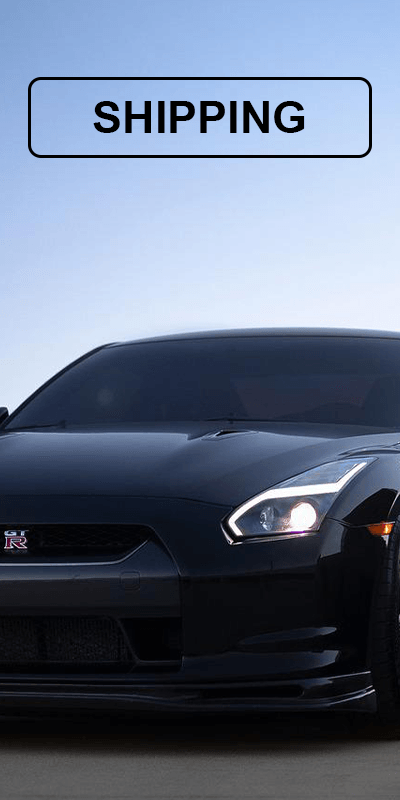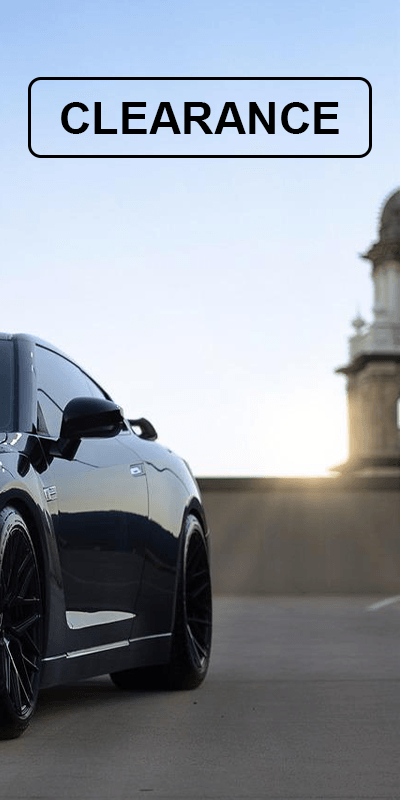Import Cars From Japan To Australia - Import JDM Cars
We import cars from Japan to Australia the easy and cost-effective way. We’re here to help you win. Have you sourced your dream vehicle? Get in touch now and find out how to import JDM cars into Australia.
Import JDM Cars
COMPLETE SERVICE SOLUTION
Phoenix Shipping can assist with the complete process to import cars from Japan to Australia. Our strong and extensive global network allows us to provide you with a full door-to-door service.
Any specific requirements? Just ask.
Import Cars From Japan To Australia
IMPORT JDM CARS - WHY CHOOSE PHOENIX SHIPPING
Avoid the pitfalls of booking your vehicle import from Japan movement with an ordinary freight agent. Did you know that many general cargo freight agents will simply outsource to someone like Phoenix Shipping anyway? Skip the process and additional costs of a middle man and talk directly with a freight agent specialising in importing a car from Japan.
Greater Value
The experience of handling thousands of import cars from Japan each year goes a long way to maximise efficiency. Avoid unexpected obstacles and import JDM cars cost-effectively.
Regular Updates
Whether you import cars from Japan to Australia regularly or one-time, preferably, you'd like to know where your vehicle is at all times. Phoenix Shipping informs you on regular intervals.
Speed & Safety
Once again, experience comes into play to avoid or minimise unexpected delays in vehicle import from Japan. We only use the best providers in the industry to ensure the safety of import cars from Japan.
Find Out How Easy It Is To Import Cars From Japan To Australia
IMPORT CARS FROM JAPAN - Simple 4-Step Process
With the amount of high-quality used cars, there’s no wonder why you want to import JDM cars. Used vehicle import from Japan is on the rise in Australia and for good reason. However, the process to import cars from Japan to Australia can be complex, putting many people off. The good news is that with the right shipping and logistics partner, it can be quite seamless. Without further ado, here’s a simple 4-step breakdown of how you can import cars from Japan.

Import Approval
You must ensure that you are eligible to import and register before you proceed to import JDM cars to Australia. Regulations are strict!

Find Logistics Provider
Phoenix Shipping is a great full-service provider specialising in vehicle import from Japan. Contact us for a full cost and process breakdown.

Documentation
It is up to you to locate and provide original copies of the paperwork required for importing a car from Japan. Your freight agent can point you in the right direction.

Compliance & Registration
When you import cars from Japan to Australia, they must pass compliance before being registered and deemed roadworthy.
Vehicle Import From Japan
AUTOMOTIVE SHIPPING SPECIALISTS
Phoenix Shipping specialises in auto shipping which means we can help import a variety of vehicles. Essentially we can move all sorts of vehicles from Japan to Australia. Here’s a quick breakdown:
– Cars & Utes
– Caravans & Motorhomes
– Trailer Boats
– Motorcycles
– Heavy Machinery & Trucks
Vehicle import from Japan is completely different from general cargo and thus requires a specialist to get it done right.

How Long Does It Take To Import Cars From Japan To Australia?
TRANSIT TIMES - IMPORT CARS FROM JAPAN

Shipping time to import JDM cars can take between 11 to 20 days depending on the loading and destination ports. Please note this is only an estimated transit time as there are many factors that can influence the actual schedule.
When you import cars from Japan, they must be at a loading yard ready for export 1-2 days before departure. In addition, inspection and port clearance will take an additional 3-5 days at the destination port. When you import JDM cars, they must go through compliance in order to be roadworthy and registered in Australia. This process can usually take an additional 5-10 working days depending on modification requirements.
Therefore, it takes approximately 30 days to import cars from Japan to Australia when considering road transport, clearance, and delivery.
What taxes are payable when you import cars from Japan to Australia?
IMPORT JDM CARS - GST & DUTY CALCULATOR (GUIDE ONLY)
This calculator is designed to give you an indication of the taxes you may face when you are importing a car from Japan. It does not take into consideration the Luxury Car Tax (LCT) threshold which comes into effect for vehicles over $80,657 or $91,387 for Fuel Efficeint Vehicles.
On the other hand, if you are shipping a car from Australia to Japan, you can disregard this calculator. When shipping to Japan, Japanese import tax law applies.
Once again, this information is only to be used as a guide and in no way constitutes a quote related to vehicle import from Japan. For a precise quote to import cars from Japan to Australia, enter your details on the quote form below and one of our freight specialists will get back to you.
Import Cars From Japan
Let experienced freight agents take control of your vehicle import from Japan.
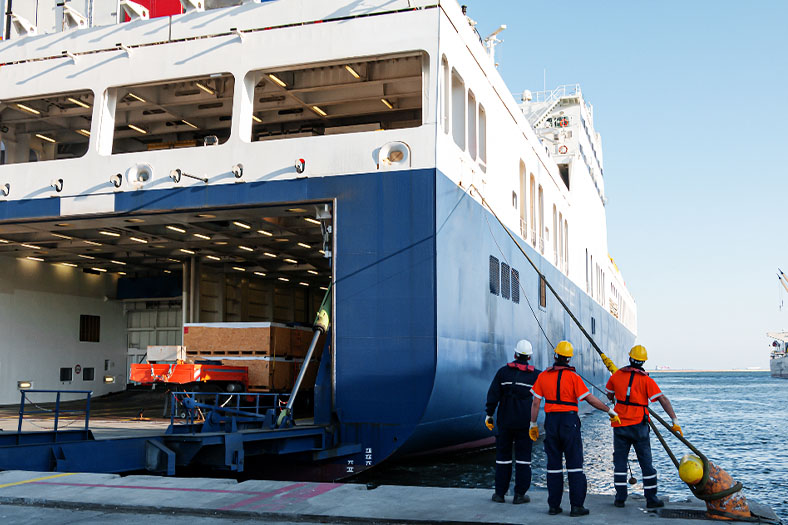
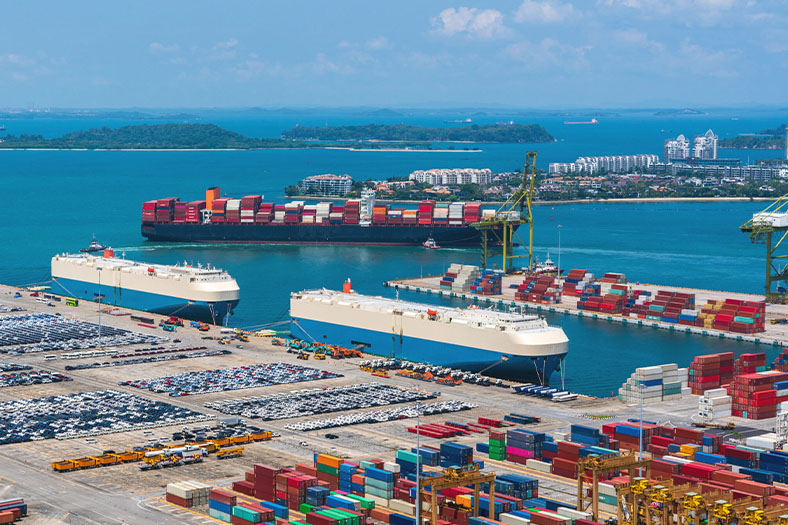
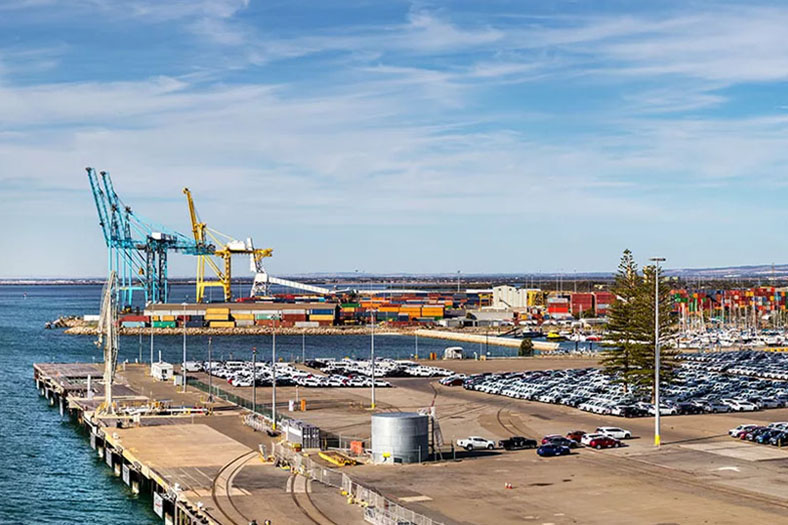
GET A QUOTE
Common Questions Answered Regarding Importing A Car From Japan
IMPORT CARS FROM JAPAN TO AUSTRALIA - FAQs
The shipping cost to import cars from Japan to Australia is between $2,500 and $3,000 AUD per car. This usually covers most cars under 20 cubic meters in size and includes the following services:
- Vehicle pick-up (within 50km range from shipping port)
- Pre-export inspection and photos
- Pre-export clean
- Export clearance
- Origin document fees
- Shipping space (port-to-port)
- Bunker Adjustment Factor (BAF) charges (fuel)
- Australian port charges
- Australian document fees and customs clearance
You also need to consider marine insurance which will cover your vehicle for damages and loss while in transit. Although the process to import cars from Japan to Australia is safe and secure, accidents do happen. It typically costs around $300 AUD to insure a vehicle up to the value of $50,000 AUD. Anything over this value is typically quoted at 1% of the total value.
Other costs which are typically excluded as part of the shipping quote are Import GST and Duty per car. GST is calculated as 10% of the purchase cost plus insurance and freight (CIF value). Duty is 5% of the FOB value, which is the costs incurred up until the port of export. As you can see, these costs predominantly vary depending on the vehicle purchase price.
You also need to consider the cost of compliance as part of the total cost to import cars from Japan. Once the vehicle is imported and cleared of the port, you need to send it to a compliance workshop for inspection and repair (if needed). This is to ensure that the vehicle meets Australian road standards before registration.
Before considering the costs to import cars from Japan to Australia, you must ensure that they can be registered. To apply for import approval, you can do so through the Road Vehicle Regulator portal.
The short answer is maybe…? In truth, it depends on your circumstances as you can only import cars from Japan to Australia under certain conditions. Used car imports are heavily regulated in Australia. The type of people who import cars from Japan to Australia are typically classic car enthusiasts, travelers, and immigrants.
The RAWS Scheme allows for registered workshops to import cars from Japan under a specialist and enthusiast-approved list. You may also be eligible to apply to import cars from Japan to Australia for vehicles manufactured before 1989.
A tourist can also apply to temporarily import cars from Japan to Australia for a period of up to 12 months. You can import your car from Japan without the need to pay duty or taxes by applying for a Carnet. A CDP Carnet may be used to import cars from Japan to Australia temporarily by tourists and temporary residents. Moreover, it also applies to the importation of motorcycles, campervans, caravans, sports utility vehicles, and trailers.
If you are immigrating to Australia and wish to bring your family cars with you from Japan, you may qualify. You can apply to import cars from Japan to Australia under the personal imports option. To be eligible, you typically need to have owned and used the vehicle overseas for at least 12 months.
You may also be eligible to import cars from Japan if they were exported from Australia originally. If the vehicle in question has an Australian identification plate, you may be eligible to import under this option.
If your intent to import cars from Japan to Australia doesn’t meet standards, you may still apply for discretionary approval. You can take the Australian Government’s eligibility assessment to find out which option you should apply for.
Japan is famous for its car export market. The process to import JDM cars is popular worldwide. According to Statista, the data proves it, with Japan exporting over 4 million cars each year (on average).
People in Japan typically sell their used cars through the famous Japanese auction houses. Every auction house has inspectors that will rate each car depending on the condition. The range from grade 5 in almost showroom condition with all original body parts and low mileage to grade 1 being heavily modified or almost a complete write-off. In addition, grade RA or A1 indicates a minor accident and repair, and grade R or A indicates history of an accident and repair.
Typically, you can’t get direct access to these auction houses and you need to register with a buyer and exporter. A buyer is an intermediary who bids and purchases on your behalf before you’re ready to import cars from Japan.
To find a reliable and trustworthy export agent, you can refer to the Japan Used Motor Vehicle Exporters Association (JUMVEA).
Once you’ve purchased through your agent, you’re now ready to import cars from Japan to Australia. Your export agent may have a preferred customs broker in Japan and will typically encourage you to use them. When you contact us, we’re able to work with your export agent and their customs broker to ensure a smooth process. From export clearance, documentation, shipping, and import clearance. Alternatively, a more cost-effective way to import cars from Japan to Australia is by us handling the complete transport process. Our full package not only ensures the best deal but also a seamless way to import cars from Japan to Australia.
How does the car auction bidding process work to import JDM cars?
Thousands of vehicles are listed with buyers from all over the world looking to import cars from Japan. Thus, the actual bidding process can last anywhere from 10 seconds to 40 seconds.
Dealers that import cars from Japan to Australia usually have an export agent that they delegate to bid on their behalf. That’s because you need to have a local second-hand goods dealer licence for one year or more. Moreover, you need a physical office in Japan and a guarantor. Competitive handling fees mean using an agent is much more efficient for dealers that import cars from Japan to Australia.
When it comes to the fast-paced bidding and the relationship with your agent, there needs to be clear communication. If you’re importing a car from Japan you want to give your agent a maximum bid and specifications you’re after. If they win the auction under your maximum bid that’s a bonus but they will not go above it.
The bidding process is done through computer terminals and most bidders won’t be at the auction’s physical location. Multiple cars come up every 20 to 30 seconds for 8 to 12 hours. Therefore, for those looking at vehicle import from Japan, there are plenty of options but also global competition.
If you are bidding from an agent’s website to import JDM cars, it means you’re placing ‘proxy bids’. That’s because only your agent can place bids directly to the auctions’ proprietary systems. Thus, they are bridging the gap on your behalf making vehicle import from Japan to overseas buyers.
Nowadays, there are many agent options available for both dealers and privates looking to import cars from Japan to Australia. When it comes to the shipping phase, Phoenix can handle importing a car from Japan with a door-to-door service.
There are plenty of benefits to sourcing and import JDM cars. The Japanese domestic market is a large right-hand drive (RHD) market, much like Australia. With a population of over 125 million, the Japanese domestic market offers unique opportunities for Australians to import JDM cars.
The Japanese domestic market offers a wide range of vehicles to source from. Because of market size, something that is rare to find in Australia is plentiful in Japan. Thus, the cost to import JDM cars may well be cheaper than buying that particular car in Australia.
The Japanese domestic car market has a reputation for having high-quality second-hand cars. Firstly, this has to do with Japanese culture as they tend to hold themselves to very high standards. This also means that they keep their cars in very tidy condition and service them regularly. Secondly, the older a vehicle gets, the more tax you pay to keep it registered in Japan. This is related to the Shaken Law, a strict inspection that happens every two years. The costs generally incentivise Japanese drivers towards buying new cars over keeping their used ones over 4 or 5 years. Thus, giving an opportunity to Australian buyers to import JDM cars with low mileage and in good condition.
The JDM market is also a haven for specialist and classic cars. Highly sought-after JDM classics like the Nissan GT-R, Honda NSX, and Toyota Supra are hard to come by in Australia. The ones available are usually sold to the highest bidder and the scarcity tends to inflate pricing significantly. By sourcing in Japan and contacting Phoenix Shipping to import JDM cars on your behalf, you can actually save money. Get in touch now to find out more about the process and price to import cars from Japan.
According to the FCAI, Australia’s top new car sellers for April 2022 were:
- Toyota Hilux
- Ford Ranger
- Toyota RAV4
- Mazda CX-5
- Isuzu Ute D-Max
There is a clear trend showing Australian consumers’ desire for Japanese vehicles. Why? Above all, Japanese cars are known for their reliability and longevity. Moreover, if you are shopping in the used car market, import JDM cars are a cost-effective solution to fulfill demand.
Of course, when you want to import JDM cars, you may be after rare and special vehicles that are hard to find in Australia. A Nissan Skyline GT-R is hard not to recognise but rare and expensive to buy in the local Australian market. The option to source and import cars from Japan to Australia gives you a broader range to choose from.
Generally, the Japanese used car market offers great quality vehicles with low mileage and affordable prices. As previously mentioned, due to expensive regulations in Japan regarding road registration, people are incentivised to replace their vehicles often. Thus, creating a global market for exporting Japanese used cars that Australian buyers can benefit from.
These are some of the most popular models of import cars from Japan to Australia:
- Nissan Elgrand
- Nissan Skyline GT-R
- Toyota Estima
- Toyota Corolla
- Toyota RAV4
Typically, import cars from Japan go through the RAWS Scheme here in Australia. This essentially means that the vehicle is taken to a registered workshop and modified to meet Australian road standards. This typically affects things like seatbelts, tyres, and re-gassing the air conditioning unit. Only then can the newly imported used vehicles be registered for Australian roads.
However, you must ensure that you get Vehicle Import Approval before arranging transport.
The number one obstacle before enquiring to import cars from Japan to Australia is getting import approval. It’s your responsibility to ensure that the vehicle can be registered here in Australia prior to booking with Phoenix Shipping. The Australian Government ROVER system is where you should go to confirm eligibility.
Transport time is another factor you must consider. It can take between 20 and 30 days to get from the origin to the discharge port. Schedule changes and delays can occur and need to be factored in too. Therefore, you must consider booking well in advance if your vehicle needs to get into Australia by a certain time.
GST, Duty, and Luxury Car Tax can considerably increase the cost to import cars from Japan to Australia. As explained in the question regarding costs, GST is calculated as 10% of CIF value. In addition, there is 5% duty calculated on FOB value, and a luxury car tax threshold.
A reliable and knowledgeable freight forwarder specialised to import JDM cars can be difficult to come by. Good thing you’ve stumbled on the Phoenix Shipping website! There are many general cargo freight forwarders that know little about the auto shipping industry. That is why it is important to go with an import agent that specialises in vehicles, like Phoenix Shipping.
All original documentation must be accounted for. From a commercial invoice, proof of ownership, vehicle, and all modification history are all things required for clearance and import. You can get in touch with us in advance to confirm all relevant documentation required to import cars from Japan.
Although the process can be complex, Phoenix Shipping is here to help at every step of the way. Our goal is to provide a service that minimises all of the difficulties mentioned above and more.
Japan is a global powerhouse in vehicle manufacturing. Therefore, Japanese-made cars are among the lowest priced in Asia. New models come into the market each year at affordable prices. This means that Japanese buyers tend to swap their used cars for new ones frequently. Even though these used cars are still relatively new and have low mileage. This presents a great opportunity to import cars from Japan to Australia and the Australian used car market itself. The inventory of used car auctions in Japan dictates the overall cost to import cars from Japan to Australia. Normally, this works in favour of the Aussie consumers by getting low mileage vehicles at very affordable prices.
Although buying a car in Japan is affordable, the running costs are extremely expensive. This increases the used car stock and the opportunity to import JDM cars for Aussies. To register a car in Japan you must have it inspected and registered as per the Japanese transport authority requirements. This can cost thousands of dollars the first time. After three years, the vehicle goes through a thorough inspection once again. It is incrementally more expensive to inspect and register and the insurance cost also increases. This is why Japanese buyers would rather buy a brand-new car rather than pay more for their used car. The Australian registration system is nowhere near as expensive, making it affordable to import cars from Japan. Even after considering how much it is to import JDM cars, it is still a viable option.
Most imported used cars from Japan are sold in good condition. This is partly because it is part of Japanese culture to take good care of your possessions. Making the industry of import cars from Japan to Australia an excellent alternative for local consumers.
Naturally, you may be curious about the most popular brands and models in Japan before you import JDM cars. It should come as no surprise that the most preferred and purchased models were all from Japanese manufacturers. And thus, the most common import cars from Japan to Australia are also made by Japanese manufacturers.
Here is a list of the 2021 top 10 selling passenger cars in Japan based on data sourced by Nippon:
- Toyota Yaris
- Honda N-Box
- Toyota Roomy
- Suzuki Spacia
- Daihatsu Tanto
- Toyota Corolla
- Daihatsu Move
- Toyota Alphard
- Nissan Note
- Nissan Roox
The Toyota Yaris took the top spot from the Honda N-Box which had been the top-selling for 4 years straight. Yaris sales came to 212,927 units, compared to 188,940 N-Box units sold. This data is regarding new car sales which will eventually be sold off to auction yards in a few years’ time. While the N-Box isn’t a popular model in the Australian market, the Yaris and Corolla are. When you import cars from Japan to Australia you must consider popularity and price at auction yards. Thus, these trends can be an indicator of bargains available and the opportunities to import JDM cars in the future.
Regardless, aside from Daihatsu, the remaining brands are some of the top sellers in Australia too. Brands like Toyota, Honda, Suzuki, and Nissan are known for their reliability and affordability. People import cars from Japan to Australia for exactly that reason. Moreover, high fuel efficiency and safety features make the process to import cars from Japan even more attractive. As the world shifts its outlook toward a more eco-friendly future, import JDM cars will play an increasingly bigger role.
That is in fact correct. As early as August 1958, the first Japanese car to be exported anywhere was right here in Australia. That was a Datsun, and by 1968, many Japanese brands were established here. From Datsun to Toyota, Mazda, Daihatsu, Honda, and more brands started gaining popularity in the early days.
To import cars from Japan to Australia was a successful experiment for the Japanese before spreading to US and Europe. In those 10 years, they managed strong growth that completely reshuffled the Australian car market. From being heavily dominated by US and English brands, to Toyota leading the way by far, 50 years later.
While no one had previously looked to import JDM cars, the Japanese began establishing their reputation of reliability and affordability. Interestingly, as early as January 1966, Toyota was the first to begin assembly operations in Australia. The Toyota Corolla was now being assembled in Melbourne instead of importing a car from Japan. Other brands, like Datsun, followed suit with local assembly over vehicle import from Japan.
The importance of Australia as an export market for Japan and Toyota was extremely high by 1965. That year, Toyota import cars from Japan to Australia totaled 17,300 sold. In comparison, Toyota’s vehicle import from Japan to the USA equaled 8,900 units, 6,600 in South Africa, and 2,800 in Europe.
Although at that time, it was all new cars coming in, the industry of import cars from Japan to Australia has changed since then. Nowadays, there is increasingly a market to import JDM cars to Australia and take advantage of the used car market.
When you’re actively searching for a freight agent to import cars from Japan to Australia, there are plenty of options. From general freight companies to more specialised companies that focus on vehicle import from Japan.
Even if you don’t choose Phoenix, we can’t stress enough the importance of picking a provider specialising in import JDM cars. Otherwise, you’re either left with a general forwarder who is simply going to outsource the process of importing a car from Japan or lacks the experience to ensure a smooth shipment.
In summary, here are 5 more reasons why you should choose Phoenix Shipping to import JDM cars:
- Established Connections and Infrastructure
- Tailored Solution
- Industry-leading Operational Processes
- Committed to Quality Service and Compliance
- Technology-Driven Approach
As an experienced player in the vehicle import from Japan industry, Phoenix has the established connections and infrastructure in place. Instead of having to chase multiple fractures of the shipping industry, we will be your one point of contact.
Everyone who is looking to import cars from Japan to Australia has different requirements and circumstances. We provide a tailored solution to import JDM cars by using multiple ports, vehicle sourcing and inspection services, and more.
We’ve also fine-tuned our operational processes to make it as easy as possible to import cars from Japan to Australia. Our team works seamlessly with our external suppliers to bring a completely seamless solution to you.
When you’re importing a car from Japan, you want to make sure that the vehicle is in safe hands. Not only do we offer marine insurance, but we also ensure that your vehicle is handled to the highest standards.
Lastly, we are a technologically-driven company. When it comes to vehicle import from Japan, we use the latest tracking systems to inform you at every step.
Anyone in the industry will tell you to expect some delays when you import cars from Japan to Australia. Of course, everything can go smoothly and you receive your vehicle import from Japan in 20 days or less. However, certain scenarios and peak times will almost certainly cause delays when importing a car from Japan.
Space availability highly fluctuates as large vessel operators navigate the demand and supply of shipping space across the globe. While they get it right most of the time, it is impossible to predict unexpected fluctuations in demand. Take COVID-19 for example, suddenly demand dropped to an unforeseen low number and then rose back up very quickly. Prices to import JDM cars to Australia grew significantly because it was so difficult to find shipping space. Take this recent example where Ford Australia has leased an entire RoRo vessel to reduce delivery wait times. Speaking to a well-connected freight forwarder can help secure your space to import cars from Japan even in difficult times.
Seasonal measures are put in place between 1 September and 30 April in Australia against the Brown marmorated stink bug. Japan is categorised as a risk country and as such vessels that import cars from Japan to Australia are inspected. If stink bugs are found in any vessel, it can be denied entry and further inspections will be taken. This creates challenges for the entire logistics sector of vehicle import from Japan by causing delays and additional costs.
Port congestion is something that can occur due to the factors already mentioned when you import JDM cars. Moreover, port congestion can also occur due to other factors like the recent strikes across multiple Australian ports. This is another thing to consider when you import cars from Japan to Australia.
Most used import JDM cars are sold through auction houses in Japan. Each vehicle includes an auction sheet that includes a grading system from Grades 5 to 1. Before committing to buying and the import of cars from Japan to Australia, the grade is important to understand. These grades are assigned by experts and describe the general condition of the vehicle. The key purpose is to help you make an informed decision before buying and importing a car from Japan.
Here’s a breakdown of the grading system:
- Grade 5: Almost new, low mileage, and original parts.
- Grade 4.5: Excellent condition. Minor imperfections.
- Grade 4: Good condition. Some scratches or dents from regular use.
- Grade 3.5: Average condition with visible dents and scratches.
- Grade 3: Scratches and dents, worn components, and possible rust.
- Grade 2: Badly corroded, damaged, or modified.
- Grade 1: Almost considered scrap, or heavily modified.
- Grade RA or A1: Involved in a minor accident. Repaired to a good standard.
- Grade R or A: Involved in an accident. Some parts were repaired or replaced.
Most people who import cars from Japan to Australia will purchase vehicles graded 4 or above. However, enthusiasts seeking limited edition vehicles will import JDM cars graded lower as projects to work on. However, the grading system is not the only thing to consider before vehicle import from Japan. Ensuring that the vehicle is eligible for import to Australia is the first step every time you import JDM cars.
Furthermore, before you import cars from Japan to Australia, it is worthwhile to get a mechanical inspection. That way, there aren’t any surprises and you can avoid the cost of vehicle import from Japan if not worthwhile. You could sell it back through auction to buyers from other countries who import JDM cars.
Contact Us
Hours
Mon: 09:00 am – 05:00 pm
Tue: 09:00 am – 05:00 pm
Wed: 09:00 am – 05:00 pm
Thu: 09:00 am – 05:00 pm
Fri: 09:00 am – 05:00 pm
Sat: By Appointment
Sun: By Appointment
Services
Shipping Routes
Address
PO Box 1018
Camden NSW 2570
Proud Sponsors:



